Nov 8, 2024
Surah Al An'am (Verses 130-140)
بِسْمِ ٱللَّٰهِ ٱلرَّحْمَٰنِ ٱلرَّحِيمِ,
(bi-smi llāhi r-raḥmāni r-raḥīm)
"In the name of Allah, the Most Gracious, the Most Merciful"
"Assalamualaikum/Hello and welcome! It's a pleasure to have you join us on this platform. Feel free to explore and engage with our community."
Feel free to join the cafe and our Instagram page for notifications and updates;
Hilokal;
https://hilokal.page.link/eUxfM
Instagram;
https://instagram.com/ideologyovlife?igshid=NjIwNzIyMDk2Mg==
Chapter 6, Verses 130-140
Surah Al-An'am, Verses 130-140
Recitation.
Translation.
Tafseer.
LESSON # 16 Chapter # 6 (Surah Al An'am)
For English Reference;
https://www.islamicstudies.info/tafheem.php?sura=6&verse=130&to=140
For Urdu Reference;
https://tafheem.net/islamikitabein/urduref.php?sura=6&verse=130-140
Translations;
Please follow the sequence to find your language;
English
Urdu
Hindi
Tamil
Bangali
Korean
Kurdish
Turkish
Portuguese
Spanish
LESSON # 16 of Chapter # 6.
Difficult Vocabularies from LESSON # 16 (Chapter # 6 Verses 130-140)
Verse # 131.
1- Forestalled. (Verb)
(To prevent something from happening by acting first.)
Verse # 133.
2- Jeopardize. (Verb)
(To put something such as a plan or system in danger of being harmed or damaged.)
3- Accrue. (Verb)
(To increase in number or amount over a period of time.)
4- Veneration. (Noun)
(The feeling or act of venerating (= very much respecting) someone or something.)
Verse # 134.
5- Epoch. (Noun)
(A long period of time, especially one in which there are new developments and great change.)
Verse # 136.
6- Benediction. (Noun)
(A prayer asking God for help and protection for someone.)
Verse # 137.
7- Infanticide. (Noun)
(The crime of killing a child.)
8- Intrusion. (Noun)
(An occasion when someone goes into a place or situation where they are not wanted or expected to be.)
9- Callousness. (Noun)
(Behaviour that is unkind, cruel, and without sympathy or feeling for other people.)
10- Sordidly. (Adverb)
(In a dirty and unpleasant way.)
Verse # 138.
11- Sacrosanct. (Adjective)
(Thought to be too important or too special to be changed.)
12- Encumbered. (Adjective)
(Prevented from making quick progress by having to carry heavy objects or deal with important duties and responsibilities.)
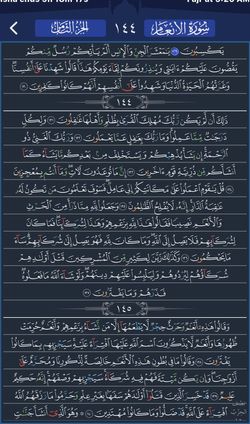
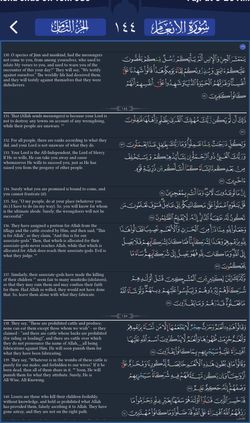
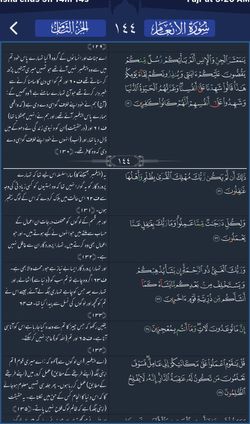
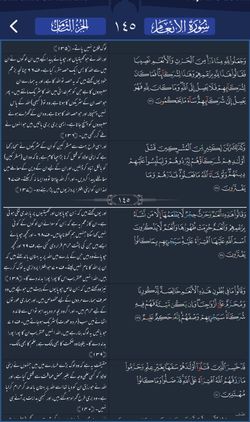
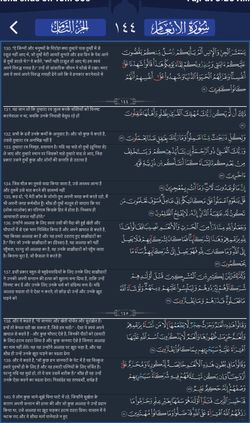
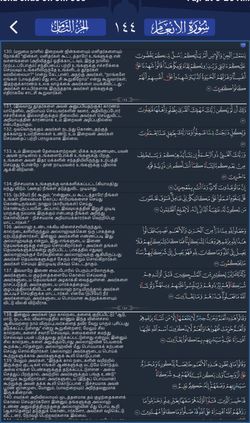
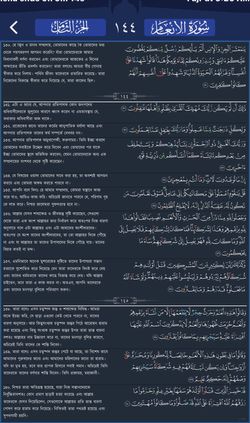
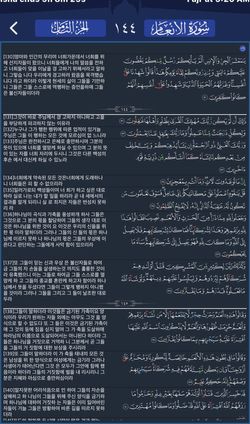
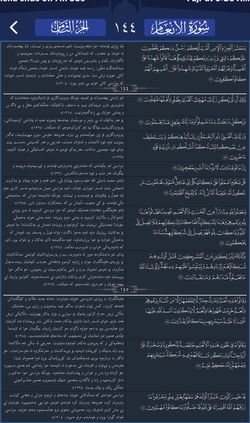
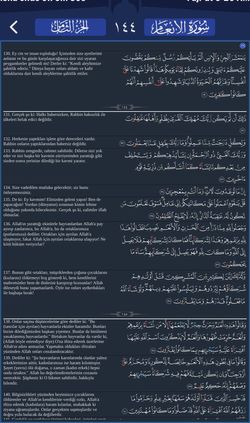
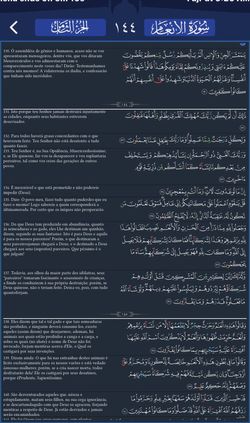
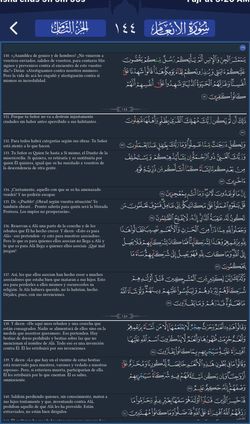
LESSON # 16 of Chapter # 6.
Summary of Verses (130-140) of Chapter # 6 Surah Al An'am:
Here are the key points from the verses of Surah Al-An'am you provided:
1. **Accountability for Rejecting Prophets and Signs**:
- On the Day of Judgment, Allah will ask the jinn and humans if messengers had not come to them with signs and warnings. They will acknowledge their rejection of the Truth, realizing that it was their own fault, not ignorance.
2. **Divine Justice and Guidance**:
- Allah does not destroy cities unjustly; people are guided through prophets and scriptures. If they still falter, they have no excuse for their punishment, as they were fully informed of the Truth.
3. **Degrees of Deeds**:
- Every person is rewarded or punished according to their deeds. Allah is aware of everything, and He is Self-Sufficient and compassionate.
4. **God’s Self-Sufficiency and Compassion**:
- Allah does not benefit from human worship; He is in need of nothing. His commands are for the benefit of humanity. He is compassionate and grants respite, offering forgiveness rather than harsh punishment.
5. **Inevitable Judgment**:
- What Allah has promised, especially regarding the Resurrection and Judgment Day, will certainly happen, and no one can prevent it.
6. **Free Will and Accountability**:
- People are free to follow their own path, but the ultimate decision will reveal the truth. Wrongdoers will not prosper.
7. **Misguided Divisions and Offerings**:
- People falsely divide their offerings between Allah and so-called associates (idols). They give more to the idols and deceive themselves, showing ingratitude to Allah, the true Benefactor.
8. **Legitimization of Infanticide**:
- Some people, influenced by devils and misguided leaders, justify the killing of their children, seeing it as part of their religious practices. Such actions lead to moral ruin and are punishable by Allah.
9. **Innovations in Religious Practices**:
- Over time, the Arabs made many innovations in the religion of Abraham and Ishmael, leading them to practices that diverged from the original monotheistic faith.
10. **Fabricated Religious Laws**:
- The Arabs invented forbidden practices (e.g., consecrating animals and crops, and making arbitrary distinctions between males and females regarding consumption). These practices were not ordained by Allah but were man-made innovations.
11. **False Restrictions on Allah’s Provision**:
- The Arabs imposed arbitrary restrictions on what they could eat and offer, such as prohibiting certain animals or sacrifices, and making distinctions about what could be consumed based on gender or other criteria. These were false fabrications against Allah.
12. **False Beliefs About the Provision and Status of Offspring**:
- They believed that certain animals' produce should only be consumed by males and prohibited for females, or that the dead offspring could be eaten by all. Allah condemns these fabrications.
13. **Punishment for the Killing of Children**:
- Those who kill their children and forbid Allah's sustenance in ignorance and folly, falsely attributing these acts to Allah, are deeply misguided and will face dire consequences for their actions.
The verses collectively highlight themes of **Divine justice**, **human accountability**, **the consequences of false beliefs and practices**, and **the importance of adhering to Allah’s guidance without innovations**.
Thankyou everyone for joining.
May Allah rewards all of you for your precious time spent here & may Allah keeps pouring his blessings upon you and your loved ones.
Stay safe & and blessed.
Aslamualaikum to all of you.
By undefined
18 notes ・ 2 views
English
Proficient